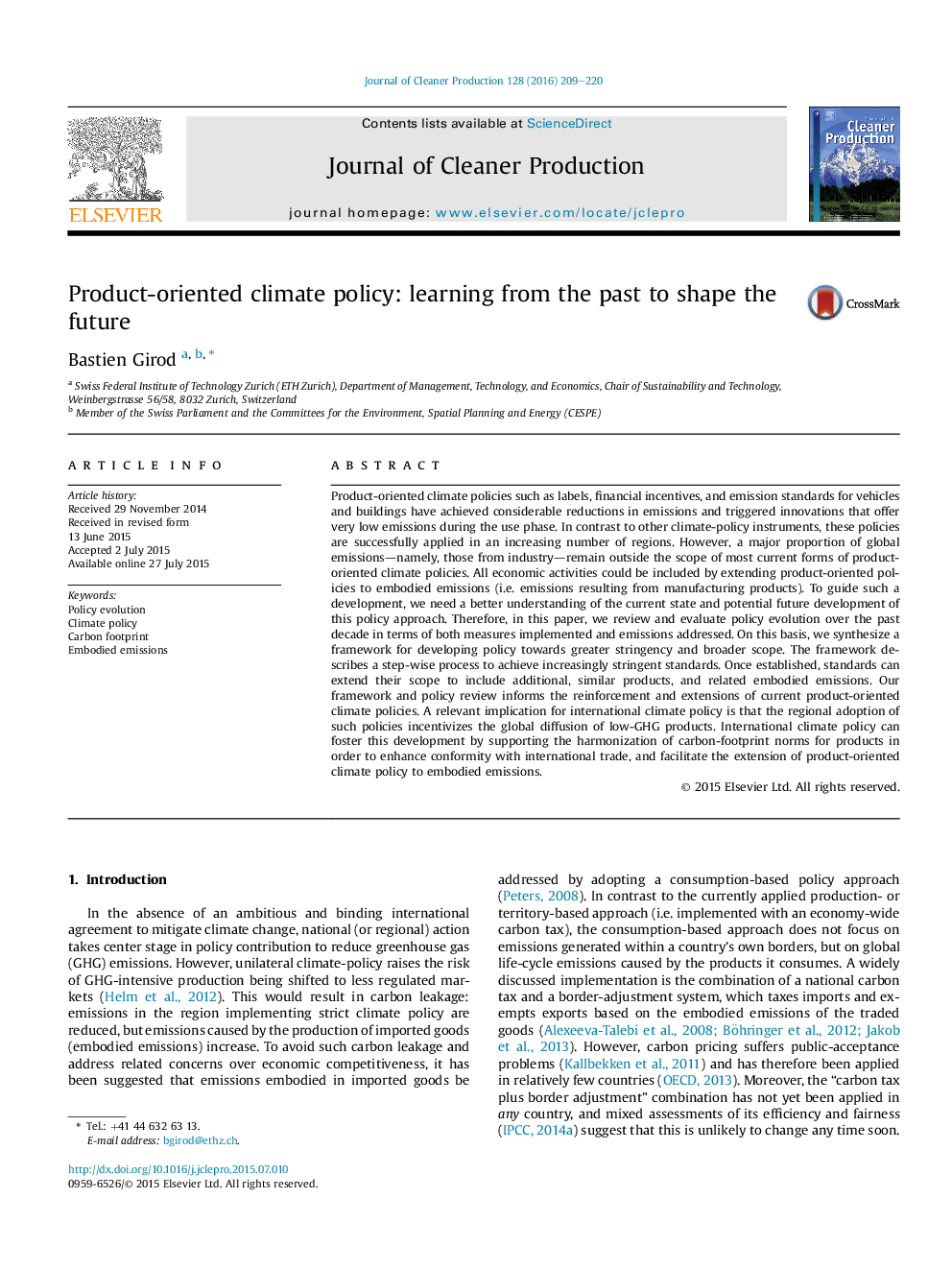| کد مقاله | کد نشریه | سال انتشار | مقاله انگلیسی | نسخه تمام متن |
|---|---|---|---|---|
| 1744143 | 1522121 | 2016 | 12 صفحه PDF | دانلود رایگان |
• Embodied emissions must be considered if unilateral climate policy is to be effective.
• We evaluate the evolution of product-oriented policies (e.g. standards, incentives).
• We propose a framework for the development of such policies across sectors.
• This indicates how embodied emissions could be integrated into current policies.
• We discuss the implications for international climate policy and trade.
Product-oriented climate policies such as labels, financial incentives, and emission standards for vehicles and buildings have achieved considerable reductions in emissions and triggered innovations that offer very low emissions during the use phase. In contrast to other climate-policy instruments, these policies are successfully applied in an increasing number of regions. However, a major proportion of global emissions—namely, those from industry—remain outside the scope of most current forms of product-oriented climate policies. All economic activities could be included by extending product-oriented policies to embodied emissions (i.e. emissions resulting from manufacturing products). To guide such a development, we need a better understanding of the current state and potential future development of this policy approach. Therefore, in this paper, we review and evaluate policy evolution over the past decade in terms of both measures implemented and emissions addressed. On this basis, we synthesize a framework for developing policy towards greater stringency and broader scope. The framework describes a step-wise process to achieve increasingly stringent standards. Once established, standards can extend their scope to include additional, similar products, and related embodied emissions. Our framework and policy review informs the reinforcement and extensions of current product-oriented climate policies. A relevant implication for international climate policy is that the regional adoption of such policies incentivizes the global diffusion of low-GHG products. International climate policy can foster this development by supporting the harmonization of carbon-footprint norms for products in order to enhance conformity with international trade, and facilitate the extension of product-oriented climate policy to embodied emissions.
Journal: Journal of Cleaner Production - Volume 128, 1 August 2016, Pages 209–220
